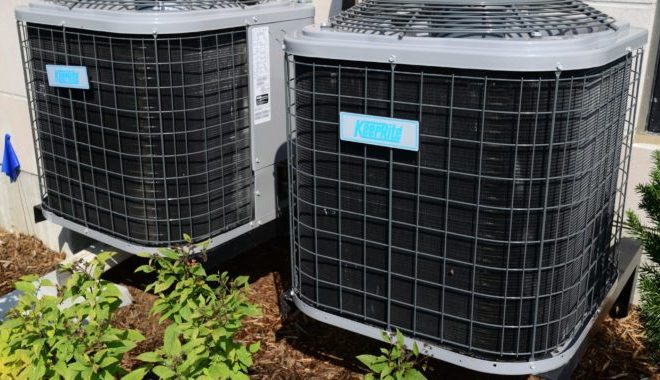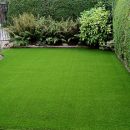7 Summer HVAC Tips

Change the air filter
To help your HVAC unit run more efficiently, it’s important to keep your air filter clean. How often you should change the filter depends on how much dust and debris are in the air where you live. Check with a professional to find out what’s best for your location. Changing your air filter will increase the efficiency of your HVAC system. Another way to increase your HVAC system’s performance and efficiency is by using an electronic indoor humidity sensor to monitor levels in rooms where people spend lots of time (like kitchens), especially during the summer months when windows are open more often than not. If it gets too hot indoors, turn off some lights or temporarily unplug certain appliances that draw lots of power but don’t need constant cooling. Shut down any unused computer monitors, open window shades but close curtains to block direct sunlight, and use fans if necessary.
Clean the condenser coils
If you want to keep your system running at its peak efficiency, it’s important to clean the condenser coils once every two years. This will improve the effectiveness of your unit and extend its life by preventing corrosion and rust buildup. Here’s how: First, shut off power completely before turning on any circuit breakers or disconnecting any wires. Next, remove leaves, molds, and other debris from the condenser coils. Next, apply a mild detergent solution to the coil fins with a garden hose sprayer; rinse with water after about 30 minutes (do not over soak). If necessary, repeat this step until all dirt is removed from all parts of each fin surface area—this may take several rinsings depending on how dirty they are initially and how much dirt accumulates between cleanings. Finally, inspect all equipment carefully for signs of damage before operating again after cleaning; call an HVAC professional in Utah if anything looks damaged so they can repair it immediately before further damage occurs!
Clean and remove debris from outdoor units
The condenser, evaporator, and fan blades are easily accessed with a ladder for roof access. The motor, compressor, coils, and drain pan can be accessed through the side of the unit by removing a grill. If you don’t want to climb up on your roof, hire a professional HVAC technician in Utah who will do all these things at an affordable price!
Clear the drain line
The drain line is the pipe that allows water to flow out of your system. If a clog develops in this pipe, it can cause several problems with your HVAC unit. The first issue is that it will reduce efficiency. While you may not think about the importance of draining water from an air conditioning system during winter, the same applies to the summer months. In order for your AC unit to work properly and efficiently, there must be enough room for air circulation and heat transfer via evaporation of water from inside the system itself. Another problem caused by clogged drains is damage caused by overheating due to a lack of adequate ventilation within your home or office space since airflow is limited due to excess moisture buildup.
Check for leaks and seal ducts in the attic to prevent air leakage
Check your ducts for leaks by using a flashlight and a mirror to look in the joint between each section of ductwork. If you find any, use some spray foam or caulk to seal them up, ensuring that the sealant is approved for HVAC systems. The best way to prevent air leakage through your ductwork is to insulate it with fiberglass batting or fiberglass insulation that has been specifically designed for use with HVAC systems (such as this one).
Avoid closing vents or obstructing airflow
When you close a vent, you cut off the air supply to your home; that’s bad for several reasons. First of all, moisture buildup can damage your unit and even cause mold to form. Dust build-up can also damage your HVAC system. Shutting a vent can also cause carbon monoxide and carbon dioxide gases to build up inside your home, which can be fatal. Radiators also need proper airflow, particularly if they are located in small rooms such as bathrooms or closets—you don’t want radon gas building up in these spaces!
Make sure vents aren’t blocked by furniture or other items
Make sure vents are free of debris. Debris can block the flow of air and make your HVAC system work harder than it needs to, which can cause it to wear out faster. If you’ve recently installed new furniture or have had something in front of a vent for a while, now’s the time to check things out. If you have children, be sure they don’t put toys near vents or make a habit of rolling around under desks and couches where there might be outlets for heaters—this puts them at risk for burns if anything falls into place on top of them!
Keeping your HVAC unit clean and maintained will help it work better, last longer, and cost less to operate.
Ascend HVAC provides HVAC repairs in Utah.


